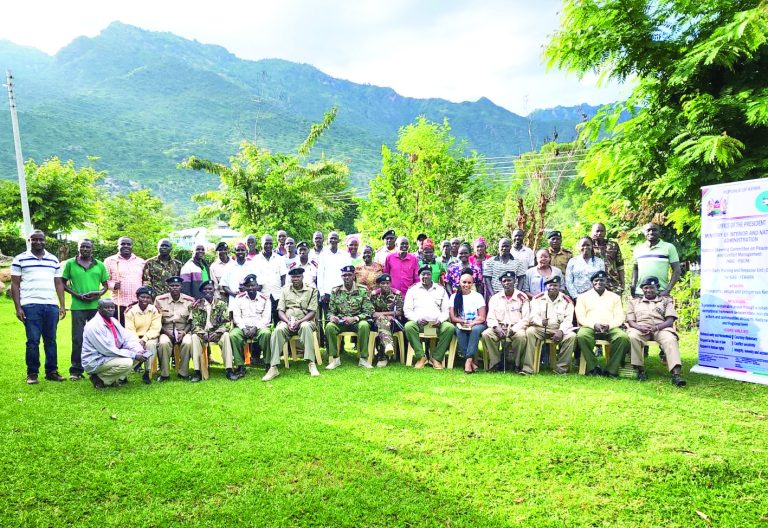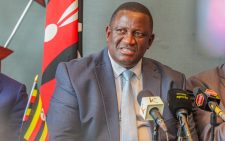State looks back at effort and strategies in security

The government has identified and addressed structural barriers, such as illegal firearms proliferation, retrogressive cultural practices and poor community-police relations in a bid to ensure sustainable peace and development.
To prevent disputes over natural resources such as water and pasture, resource-sharing agreements have also been developed in the affected regions in the country.
According to the National Steering Committee on Peacebuilding and Conflict Management, detailing the achievements and measures put in place between January and December 2024, the National Peacebuilding Architecture has also been reviewed to define the country’s new agenda for peace.
The document was launched in December.
“It provides a roadmap that seeks to address Kenya’s dynamic challenges while ensuring sustainable peace and development,” the report states.
In Kitui, Garissa, Tana River, Samburu, Elgeyo, Narok and Kisumu the government has adopted inclusive and participatory community engagements by strengthening community policing and trust-building mechanisms.
These forums bring together security agencies and local communities, promoting open dialogue and collaboration.
“There has also been enhanced relations between law enforcement officers and civilians through structured engagement initiatives,” the report adds.
Inclusive engagement
The community-oriented early warning systems involving peace committees, elders and local groups have also been operationalised, besides encouraging collaborative efforts between community stakeholders and security agencies to prevent crime and address conflicts proactively.
The inclusive peace building efforts have included actively engaging women and youth in dialogue forums, emphasising their pivotal roles in fostering cohesion and reducing violence.
“They have also supported inter-generational dialogue to bridge gaps between youth and elders, enhancing collective decision-making and conflict resolution,” the report observes.
To reduce crime and conflict in some of these areas, the government has advocated for alternative justice systems culturally aligned with community practices to resolve disputes.
They have also conducted sports and cultural events, including peace caravans and inter-communal football matches as tools to promote unity and mitigate conflict.
Other measures include implementation of the sensitisation forums to improve understanding of community policing concepts and the rule of law.
Equally, local peace committees have been trained on effective mediation, negotiation, and communication techniques to strengthen their conflict resolution capacity.
To ensure peace, some of the marginalized groups have been empowered through the promotion of the economic and social well-being of women and youth through alternative livelihoods, cross-border trade initiatives, and skill development.
“The government has also advocated for the inclusion of women and youth in leadership roles, reinforcing their influence on peace and security structures.
Through strategic partnerships and collaboration, synergies between government, non-state actors, and local communities have been strengthened, ensuring sustainability and scalability of peace initiatives.
In November last year, Kenya, Somalia and South Sudan also partnered to strengthen regional cooperation and build sustainable solutions to pressing security threats including violent extremism and community conflicts.
The multi-country initiative is a collaboration between United Nations Development (UNDP) Regional Service Centre Africa (RSCA) and the Korea International Cooperation Agency (Koica) aimed at supporting the three countries in strengthening peacebuilding infrastructures, preventing violent extremism, and enhancing social integration through promoting community empowerment, cohesion, and economic resilience.
During the launch, Internal Security Principal Secretary Dr Raymond Omollo said the risks Kenya faces are not unique to Kenya but are common globally, hence the need to leverage the collective security framework outlined in the United Nations (UN) Charter to address these threats effectively.
The initiative seeks to strengthen the societies’ and individuals’ abilities to reject extremist belief, avoid radicalisation, terrorist threats and other crimes, considering the fact that terrorism and other crimes are fuelled by social, economic and political inequities, and that those who are disadvantaged or isolated are particularly susceptible to radicalisation.










